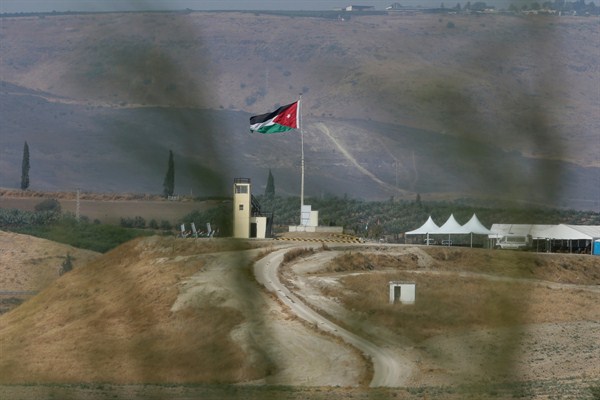The 25th anniversary of the landmark peace treaty between Jordan and Israel came and went without celebration among Jordanians last fall. They did cheer, however, when the Jordanian government refused to renew annexes to the treaty that allowed Israel to lease and farm fertile lands in the Jordan Valley. While Israelis were disappointed by the move, which followed through on a previous announcement, Jordanians welcomed the return of their country’s flag and sovereignty to the territories of Baqura and al-Ghamr. A cold peace, as King Abdullah II has often put it, is getting colder.
Relations between Jordan and Israel have sunk to their lowest point since the day the peace treaty was signed in 1994. This rift is the result of a series of incidents that have further soured Jordanians on an already unpopular peace treaty. In 2014, a Jordanian judge was killed by Israeli soldiers during a dispute at the Allenby Bridge border crossing between Jordan and the West Bank. In 2017, an Israeli security officer shot and killed two Jordanians during a confrontation at the Israeli Embassy in Amman. Israel claimed diplomatic immunity over the incident, and the officer was shuttled back to Israel for a hero’s welcome by Prime Minister Benjamin Netanyahu. More recently, two Jordanian citizens were released from Israeli detention after lengthy hunger strikes, but only after Jordan’s government intervened on their behalf.
Jordanian authorities condemned all these episodes, as well as what they regard as almost daily intrusions at the Haram al-Sharif or Temple Mount in the Old City of Jerusalem, site of the al-Aqsa Mosque and the Dome of the Rock, two of the holiest sites in Islam. The peace treaty enshrined Jordan’s royal family, the Hashemites, as custodians of the Muslim and Christian holy places in Jerusalem—a role King Abdullah, like his father, King Hussein, takes very seriously.

